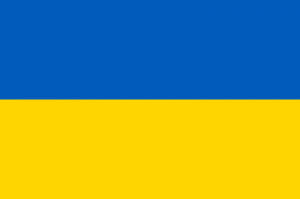 The events in Ukraine have made international headlines recently. The revolution and subsequent invasion of Crimea by Russia have renewed the old conflict between the US/Western Europe and Russia. Yet despite everyone having the word “Ukraine” on their lips, how many people really know anything about it? And what does speculative fiction, and alternate history in particular, have to say on its history?
The events in Ukraine have made international headlines recently. The revolution and subsequent invasion of Crimea by Russia have renewed the old conflict between the US/Western Europe and Russia. Yet despite everyone having the word “Ukraine” on their lips, how many people really know anything about it? And what does speculative fiction, and alternate history in particular, have to say on its history?
Ukraine, known for its extensive farmlands, is a relatively new country with a long history of foreign domination. After the golden age of the Kievan Rus in the Middle Ages, Ukraine was traded by the different empires that dominated Eastern Europe, including the Poles, Mongols, Tartars, Ottoman Turks, before finally beginning their long history as part of the Russian Empire. The rise of Ukrainian nationalism coincided with some dark times for both Ukraine and Russia. Ukraine suffered through World War I, the Russian Revolution, the Russian Civil War, Stalinism and World War II. Various different factions fought over the fate of Ukraine, from republicans, to communists and fascists, and even an army of anarchists under Nestor Makhno.
For most of the 20th century Ukraine was a part of the Soviet Union, until that nation’s collapse in 1991 which also saw the rise of the modern Ukrainian state. Today, Ukraine is a state that is important to the West and East. Pipelines carrying natural gas and oil cross it to supply power to Europe from Russia. Although most of the country is ethnically Ukrainian, 17% of the country is ethnically Russian (mostly concentrated in the East and South, where they are the dominant ethnicity in Crimea) who are often pro-Russian in their political views and clash with the pro-European Western Ukraine. Another important ethnic group are the Muslim Tartars who were exiled from their homes in the Crimea by Stalin, but in modern times have begun to return.
There are a few Ukrainian science fiction writers of note, although depending on your classification of “Ukrainian” due to the current crisis, some of these writers are from the Russian speaking minority. From an alternate history point of view, fan writers have come up with several different versions of Ukraine, but professional works are very slim (although Harry Turtledove has managed to bring it up in most of nhis major series).
According to Uchronia, there is only one work of alternate history published originally in Ukranian: Defiliada v Moskvi (Parade in Moscow) by Vasyl Kozhelyanko. It is a story about a Ukrainian military officer’s shifting loyalties in a world where Nazi Germany defeated the Soviet Union, but never fought a war with the West. Such a scenario is similar to one of my favorite online (but now defunct) timelines, Shattered World by Bobby Hardenbrook. I should note that both worlds feature a Ukraine that is dominated by a Nazi Germany, instead of the communist Soviet Union.
 Although there are few Ukrainian alternate histories, Ukraine still finds its way into some important works in the genre. In Mark Millar’s Red Son comic, Kal-El lands in Ukraine instead of Kansas, switching out the American breadbasket for the Russian one. The Crimean War, a conflict between Russia and an alliance of Europeans led by France and Britain, is also mentioned in certain stories including SM Stirling’s “The Charge of Lee’s Brigade” (where the American Revolution never happened and Robert E. Lee is fighting in the Crimea on the side of Britain) and Jasper Fforde’s Thursday Next series (where the Crimean War lasts for 150 years). A curious novel on Crimea, which is at the center of the current crisis, is Остроб Крым (The Island of Crimea) by Vasiliy Aksyonov. In that world Crimea was an island instead of a peninsula and was held out by the White Russians against the Soviet Union (much like the current relationship between China and Taiwan). One wonders how the current situation would be playing out if Crimea was an island in this world as well, but even this change to geography, in my opinion, wouldn’t have prevented the current occupation.
Although there are few Ukrainian alternate histories, Ukraine still finds its way into some important works in the genre. In Mark Millar’s Red Son comic, Kal-El lands in Ukraine instead of Kansas, switching out the American breadbasket for the Russian one. The Crimean War, a conflict between Russia and an alliance of Europeans led by France and Britain, is also mentioned in certain stories including SM Stirling’s “The Charge of Lee’s Brigade” (where the American Revolution never happened and Robert E. Lee is fighting in the Crimea on the side of Britain) and Jasper Fforde’s Thursday Next series (where the Crimean War lasts for 150 years). A curious novel on Crimea, which is at the center of the current crisis, is Остроб Крым (The Island of Crimea) by Vasiliy Aksyonov. In that world Crimea was an island instead of a peninsula and was held out by the White Russians against the Soviet Union (much like the current relationship between China and Taiwan). One wonders how the current situation would be playing out if Crimea was an island in this world as well, but even this change to geography, in my opinion, wouldn’t have prevented the current occupation.
So what about nuclear weapons as a solution to the problem? The break up of the Soviet Union left Ukraine with a sizable arsenal that they ultimately dismantled in 1996 under the guarantee that their territorial integrity would be respected. The fact that Russia seems poised now to annex the Crimea is why the West has declared Putin has broken this agreement. In light of recent events, commentators have criticized Ukraine for dismantling its nuclear weapons, including Amazing Stories own Chris Nuttall, and have argued Russia would not have made its play for Crimea with a nuclear armed Ukraine. Others, however, have come out against this idea and suggested that nuclear weapons would have done nothing to stabilize Ukraine and might have brought the conflict we see now between the Ukrainian people even earlier. What counterfactual you believe probably depends on your own personal political beliefs, but I personally don’t find nuclear weapons the answer. They can be expensive to build and maintain and there is a always the doomsday scenario of a nuclear power collapsing into civil war, as Ukraine almost did (and still might) in this timeline.
So what have we learned from our sideways look at Ukrainian history? Although it has a long history, independent Ukraine is a relatively new idea, as most of its history has been dominated by one empire or another and thus is often the scene of their titanic battles. Although there are Ukrainians who are willing to fight for their freedom and independence, they need the support of others to fully secure it. Lacking the ability to turn their country into an island or gain weapons of mass destruction as a deterrent in time, Ukraine would have probably benefited from an earlier break-up of the Soviet Union where they would have had more time to grow closer to Western Europe before having to deal with a renewed Russian power.
Although some have called the ongoing crisis the start of a new “Cold War,” I personally doubt this will be the fight between capitalism and socialism we remember from history. Instead it will be a battle between liberal democracies and conservative oligarchies. Who will come out on top may still be up for debate, but one thing is certain: Ukraine will be caught in the middle of it.


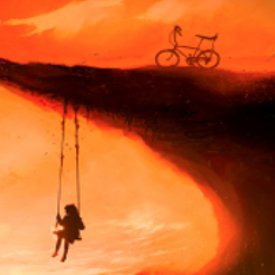

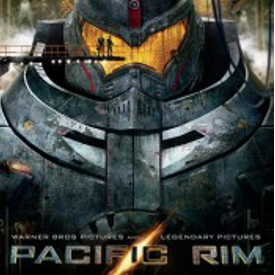
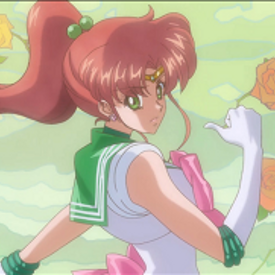
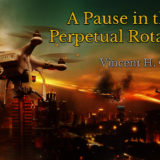
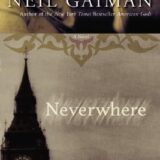



1 Comment